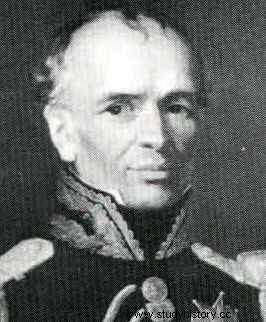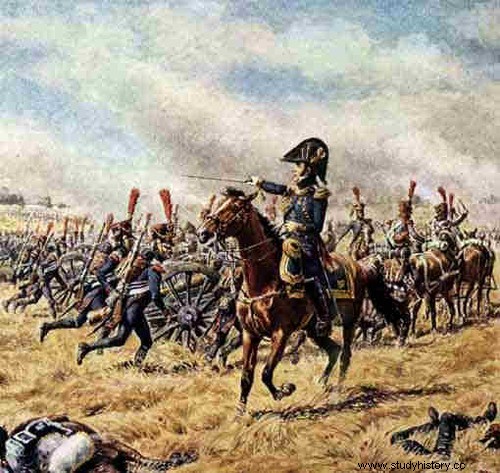January 11, 1774 (Nancy) - March 24, 1847 (Nancy)
-

- Portrait of Drouot
Son of a baker, at the artillery school of Châlons in 1793, Drouot served in the North and on the Rhine. Captain in February 1796, transferred to the army of Italy, he brooded the retreat of the army to La Trebbia (June 18-20, 1799). He was still in Hohenlinden in 1800. Sent to Toulon to command the landing artillery, he narrowly escaped the disaster at Trafalgar. Appointed battalion commander to the general staff of the Grande Armée, he was then inspector of the factories of Maubeuge and Charleville, before being sent, in 1808, to direct the artillery park of the army of Spain. . In 1809, major of the artillery on foot and director of the park of the guard, he played a decisive role in Wagram by crushing the Austrians under the fire of a hundred guns. Promoted colonel-major of the foot artillery of the guard after this exploit, baron of the Empire in 1810, Drouot made the Russian campaign with the guard, ensured the victory of the Moskva thanks to his artillery. Having saved most of his park during the retreat, he was promoted to brigadier general on January 1, 1813, aide-de-camp to the Emperor and general of division the following September, count of the Empire in October. His artillery plays a decisive role at Weissenfels, at Lützen, at Bautzen, saves the retreating army at Hanau Drouot is everywhere during the French campaign, at La Rothière, at Champaubert, at Vauchamps, at Mormant, at Craonne, at Laon. In Fontainebleau at the time of the abdication, Drouot follows Napoleon to the island of Elba and becomes the governor of the island. Although he disapproves of the adventure, he is at the side of the Emperor during the Hundred Days, at the head of the Imperial Guard at Waterloo, where he fought heroically. Accused of high treason, Drouot surrendered to justice and was acquitted. Louis XVIII received him and told him that he admired his loyalty to Bonaparte. Refusing his reinstatement in the army, Drouot lived from then on in retirement, refusing all the titles and honors offered to him by the sovereigns. successive ins. His name is inscribed on the Arc de Triomphe.
-

- Drouot in Wagram
